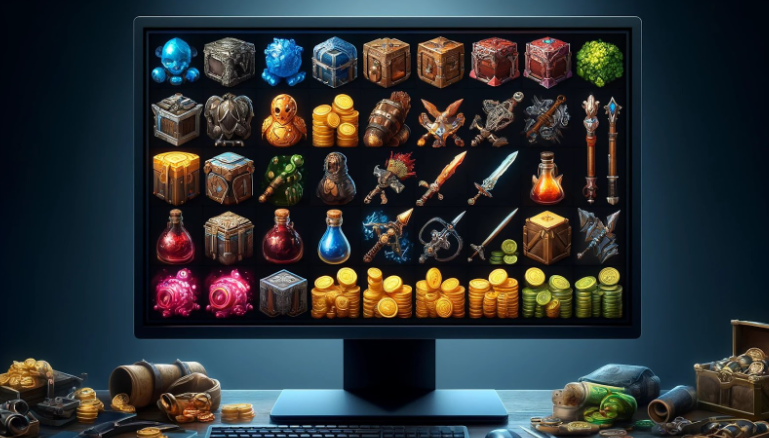The Psychology Behind Game Loot: Why We Can’t Stop Collecting

In the world of video games, loot plays a pivotal role in how we experience and enjoy our gaming sessions. From the thrill of dropping onto a battlefield in Fortnite to seeking treasure in the vast expanse of the sea in Sea of Thieves, the hunt for new, exciting loot drives much of our gameplay.
This article explores the psychological factors that make game loot so compelling and why players are so motivated to keep collecting it.
Contents
Understanding the Appeal of Game Loot
Game loot, ranging from basic supplies to rare and unique items, is a key factor in player engagement and satisfaction. It not only enhances the player’s capabilities within the game but also serves as a reward mechanism, providing a sense of achievement and progression.
Here are a few reasons why game loot is so appealing:
1. The Reward System
Humans are naturally driven by a reward system. In gaming, loot acts as a reward for completing challenges or defeating enemies. This reward system stimulates the brain’s pleasure centers, similar to how we experience joy from other rewarding activities in life.
The random nature of loot drops can create a gambling-like effect, where the anticipation of receiving something valuable or rare keeps players coming back for more.
2. Sense of Achievement
Collecting rare loot or completing a set of gear can give players a sense of achievement. This is particularly significant in games where collecting specific items is a challenge.
The more difficult an item is to obtain, the greater the sense of accomplishment when it is finally acquired.
3. Customization and Personalization
Loot often allows players to customize and personalize their characters, making their gaming experience unique. This could be through cosmetic items that change a character’s appearance or through gear that alters their abilities and gameplay style.
Players enjoy expressing themselves through their avatars, and loot provides the tools to do so.
4. Social Status and Competition
In multiplayer and online gaming environments, possessing rare or exclusive loot can confer a certain status within the community.
Items that are difficult to obtain or require significant skill to acquire are often prized not only for their functionality but also for the prestige they confer on their owner.
The Role of Game Loot in Player Engagement
Game developers cleverly use loot to keep players engaged. By integrating loot into the core gameplay mechanics, they can create a compelling loop that encourages continual play. Here’s how loot plays a crucial role in player engagement:
- Encouraging Exploration: Many games reward players with loot for exploring new areas or venturing off the beaten path. This encourages players to explore the game’s world, enhancing their overall experience and immersion.
- Increasing Longevity: By continuously introducing new loot through updates or events, developers can keep the game fresh and engaging. This not only maintains the existing player base but can also attract new players.
- Enhancing Replayability: The variability of loot ensures that no two gameplay experiences are exactly the same. This variability can make games more replayable, as players come back to see what different outcomes they can achieve.
Strategies for Managing Your Loot Collection
While collecting loot is a big part of the fun in gaming, managing what you collect is just as important. Here are some strategies to help you manage your loot effectively:
- Prioritize Your Needs: Focus on collecting items that are most beneficial for your gameplay style or necessary for progression.
- Inventory Management: Regularly review your inventory to discard or trade items that are no longer needed.
- Set Goals: Have specific goals for what you want to achieve with your loot to prevent aimless collecting. This could be gearing up for a particular challenge or completing a set of collectibles.
Conclusion
The psychology behind game loot is deeply rooted in basic human behaviors and social interactions. It taps into our reward systems, offers a means for personal expression, and promotes social standing and competition.
Understanding why we find game loot so appealing can help players and developers alike create more meaningful gaming experiences. Whether you are a casual player or a dedicated collector, recognizing the influence of these psychological factors can enhance both your strategy and enjoyment in gaming.


